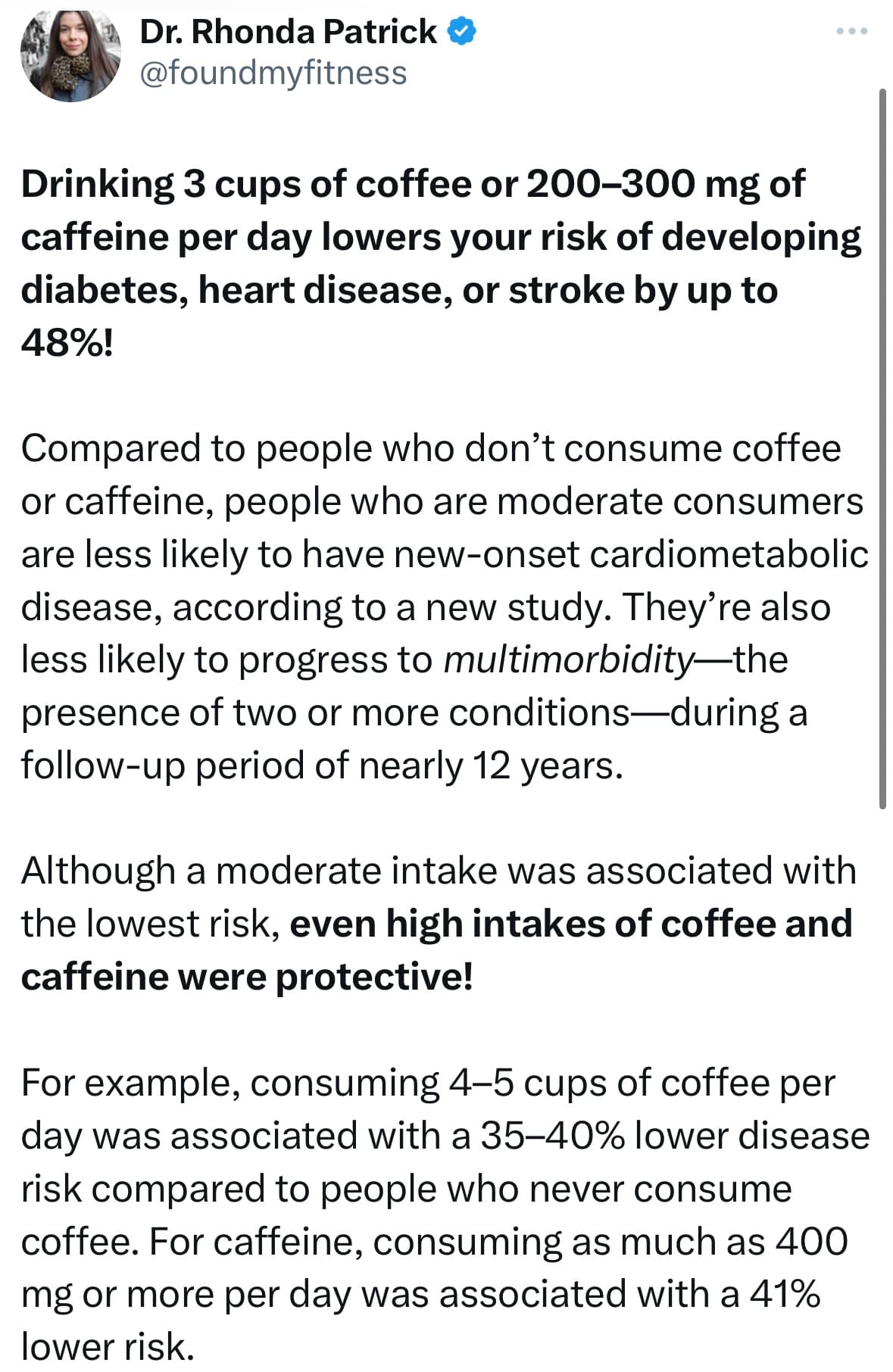Ke and his colleagues based their findings on data from the UK Biobank, a large and detailed longitudinal dietary study with over 500,000 participants aged 37-73 years. The study excluded individuals who had ambiguous information on caffeine intake. The resulting pool of participants included a total of 172,315 individuals who were free of any cardiometabolic diseases at baseline for the analyses of caffeine, and a corresponding 188,091 individuals for the analyses of coffee and tea consumption.
I’d like to think this is true since I have 3 cups every morning. But could it just be correlation?
We should read and examine attenitevely the original article. Coffee has many putative beneficial principles beyond caffeine: chlorogenic acid, diterpenes and more …
I love having 4 cups of coffee a day no matter whatever other benefits it may have. Everything else is just a bonus.
DeStrider, love, liking, or hedonistic pleasure is a thing, objective benefits or detriments are just another thing. 4 cups of coffee may be good to your taste and beneficial on top of it, but they may be objectively detrimental if taken late in the day, unless you are an outlier in fast metabolization of caffeine.
I take all four cups in the morning. No caffeine for me after 3 pm or it affects my sleep. I mix glycine, TMG and collagen in my first 2 cups and Taurine and Magnesium citrate in my last two cups. I drink my first at 6 am and my last at around 10 am. I drink two cups (in a giant mug) at a time.
In the above case, it would seem that hedonistic pleasure and benefits to health go hand in hand.
I love these favourable combinations, which include Coffe, cocoa-drinks (home-made), tea and more
I am very grateful that caffeine turns out to be good for you.
Other studies have shown reduced all cause mortality as well.
How Not to Age has an interesting section on coffee. Some evidence to suggest coffee inhibits mtor and induces autophagy.
Decaf had a similar effect on all cause mortality. Suggesting perhaps other components than caffeine.
